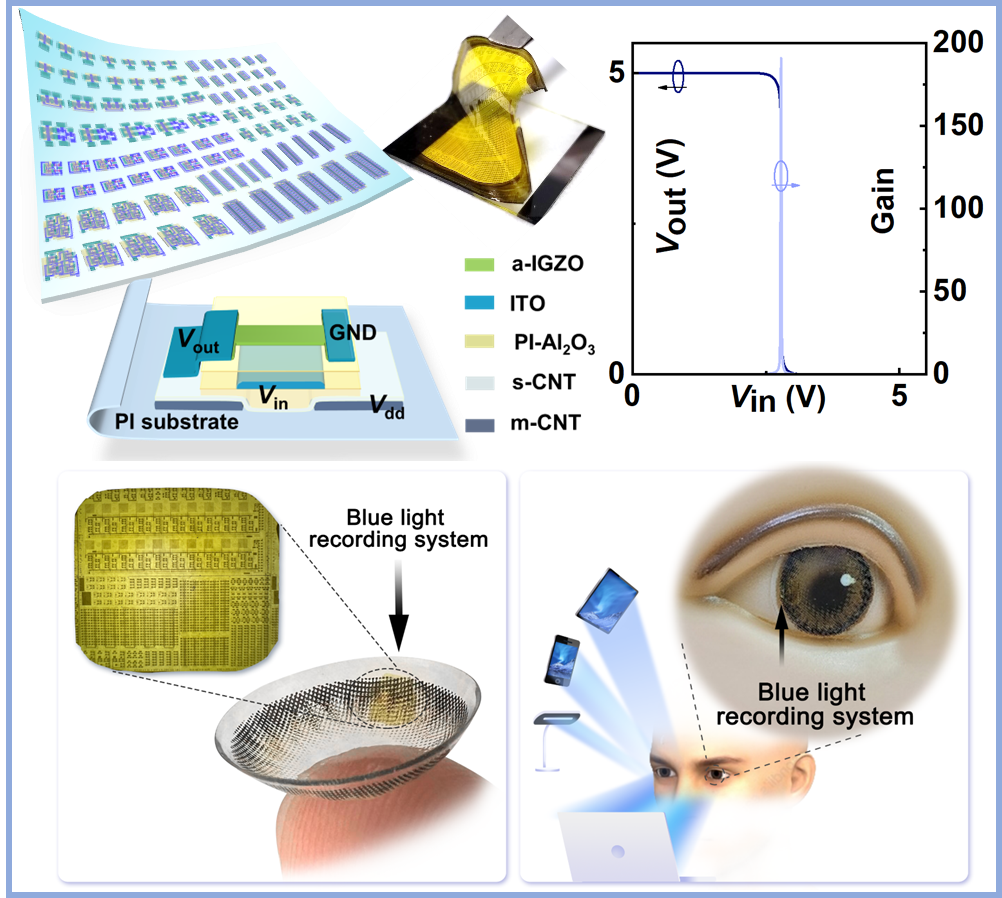Recently, Prof. Zhang Min, Zhang Jiaona and Wang Wanting published their research results entitled ” Ultra-Flexible Monolithic 3D Complementary Metal-Oxide-Semiconductor Electronics ” on Advanced Functional Materials (SCI zone 1 with IF =19.924) as the corresponding author and the first author respectively.
Flexible electronics based on complementary metal-oxide-semiconductor (CMOS) technology has enabled a smart soft world. However, the trade-off among flexibility, density and electrical performance has been a long-lasting unresolved issue. Here, we propose a monolithic three-dimensional (M3D) CMOS design to address this problem and realize ultra-flexible electronics with high electronic-performance and integration. This design utilizes vertically stacked p-type carbon nanotube transistors and n-type indium gallium zinc oxide ones, which share common gates and drains, saving the inter tier vias required in the traditional M3D structure to reduce routing and improve flexibility. With this design, CMOS logic gates, multi-stage circuits, ring oscillators (ROs) and memory modules, are demonstrated. This design enables circuits to save up to 45% of area compared with their planar counterparts. Particularly, inverters exhibit a record-high gain of 191, and 55-stage ROs can operate well even after bending at a 500-μm radius for 50 cycles, exhibiting the highest flexibility among the reported ones. The ultra-flexible and high-integration RO enables a wearable light recorder to collect harmful blue light shining into human eyes by simply attaching the circuits on a contact lens. This integration method provides possibilities for developing complex-function wearable electronics.
The article links:

